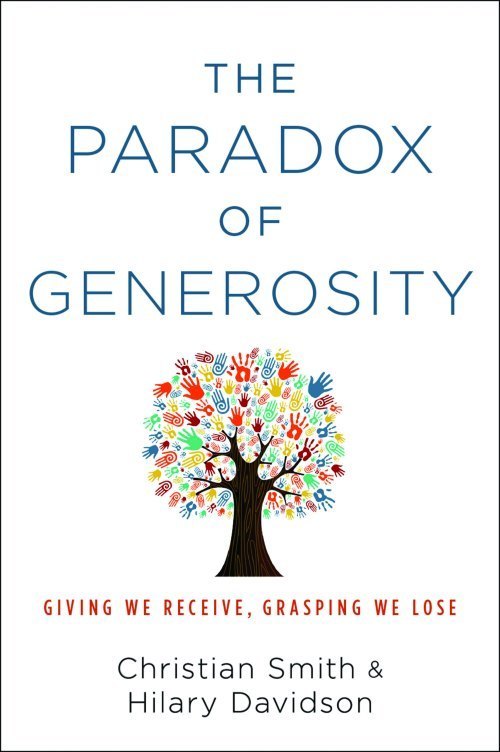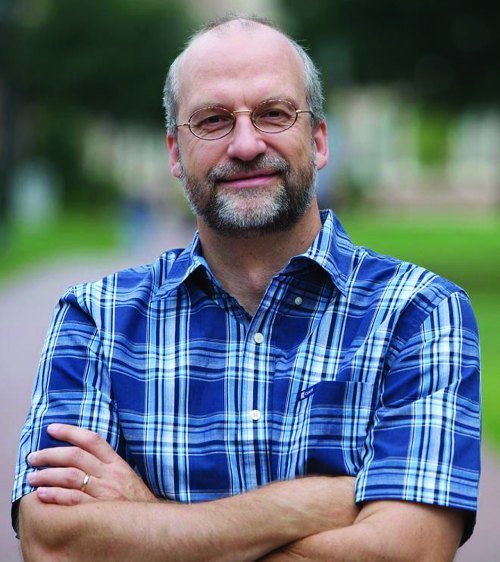In this season of giving, it’s appropriate to recall perhaps the most famous miser in literature, Charles Dickens’ Ebenezer Scrooge.
“At this festive season of the year, Mr. Scrooge,” said the gentleman, taking up a pen, “it is more than usually desirable that we should make some slight provision for the Poor and destitute, who suffer greatly at the present time. Many thousands are in want of common necessaries; hundreds of thousands are in want of common comforts, sir.”
“Are there no prisons?” Scrooge asks. “And the Union workhouses? Are they still in operation? … I help to support the establishments I have mentioned—they cost enough.”
The word “miser,” Christian Smith and co-author Hilary Davidson note in “The Paradox of Generosity,” (Oxford University Press, 2014) is related to the word “miserable.”
And we’d be hard-pressed to find a more wretched character than Scrooge, “a tight-fisted hand at the grind-stone, Scrooge! A squeezing, wrenching, grasping, scraping, clutching, covetous, old sinner! Hard and sharp as flint, from which no steel had ever struck out generous fire.”
But if you imagine Scrooge’s attitude died out with Dickens’ England, you have only to read the comments on a recent (Sept. 3) PBS Newshour story (“Are Americans a stingy lot of people?”) on the book.
“My taxes already go toward generous (sic) amounts of welfare, Section 8 housing, food stamps and Obamacare for the so-called ‘unfortunate’ and the illegals.”
“Americans are not stingy. We’re just very tired of being asked to give…and to give…and to give…ENOUGH. I’m keeping my hard-earned cash for my family. Period.”
The notion of generosity, and the ways in which we deal generously—or not—with our friends, family and communities—is the heart of the book, which is based on empirical data collected during five years of research as part of the Science of Generosity Initiative.
The research draws on a survey of 2,000 Americans, 60 in-depth interviews with individuals across 12 states, and more than 1,000 photographs and other visual materials.
The conclusion Smith, William R. Kenan Jr. Professor of Sociology, draws is that there’s a direct correlation with happiness and generosity. “The more generous Americans are, the more happiness, health and purpose in life they enjoy,” he says.
Jesus’ saying, “It is more blessed to give than to receive,” turns out to be true.
But at the same time, many Americans aren’t very generous with their money. Only about 3 percent of Americans give more than 10 percent of their income to charity. Nearly half of Americans (44.8 percent) give nothing.
What does it mean to be generous? On a basic level, generosity, Smith notes, is “the virtue and practice of giving good things to other people. It’s a practice, not just an attitude.”
But generosity can also mean volunteering, donating blood, relational attention and emotional availability to friends and family. It means attending to, and caring about, others.
The kind of generosity that repays the generous person is sustained generosity over a lifetime, Smith says, “not a one-off thing. It has to be regularly giving money, tithing—a practice. It is empirically the case that you need to learn to love others.”
Smith himself became interested in financial giving when he realized all the good that could be done in the world, if there were resources to do it.
People who aren’t generous feel fear, he notes. “They’re afraid they’ll lose everything. Feeling like you’re helping someone else gives us a feeling of gratitude, like we’re living in a world of abundance rather than a world of scarcity.
“In holding on to what we possess, we diminish its long-term value to us. Some people make financial decisions that lock them in—they have no discretionary income because they’ve chosen to spend it all on themselves. Other people want to become more generous—they live with a low-level guilt. A comfortable guilt.
But they’re not so uncomfortable that they’ll change anything. They need to get over that hump.”
It’s worth doing some soul-searching, Smith says. “People need to confront themselves. What are our best selves? Who would we like to be? See the difference your generosity can make, for the animal shelter or whatever your vocation of care is.”
That’s the conclusion of the book—that generosity is paradoxical. In giving away, we receive back in return. By clinging to what we have and trying to protect against uncertainties and misfortunes, we become more anxious about those anxieties and misfortunes. By failing to care for others, we do not properly take care of ourselves.
Scrooge, at the end of his story, emerges as a different, now generous soul. It’s a transformation any of us can undergo.
“Some people laughed to see the alteration in him, but he let them laugh, and little heeded them; for he was wise enough to know that nothing ever happened on this globe, for good, at which some people did not have their fill of laughter in the outset; and knowing that such as these would be blind anyway, he thought it quite as well that they should wrinkle up their eyes in grins, as have the malady in less attractive forms. His own heart laughed: and that was quite enough
for him.”

